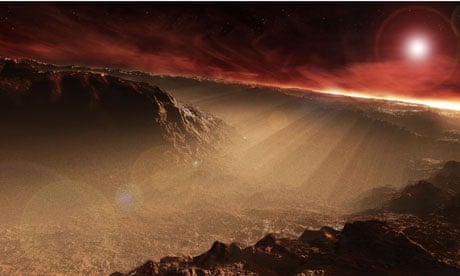Evidence is mounting that life on Earth may have started on Mars. A leading scientist has claimed that one particular element believed to be crucial to the origin of life would only have been available on the surface of the red planet.
Professor Steven Benner, a geochemist, has argued that the "seeds" of life probably arrived on Earth in meteorites blasted off Mars by impacts or volcanic eruptions. As evidence, he points to the oxidised mineral form of the element molybdenum, thought to be a catalyst that helped organic molecules develop into the first living structures.
"It's only when molybdenum becomes highly oxidised that it is able to influence how early life formed," said Benner, of the Westheimer Institute for Science and Technology in the US. "This form of molybdenum couldn't have been available on Earth at the time life first began, because three billion years ago, the surface of the Earth had very little oxygen, but Mars did.
"It's yet another piece of evidence which makes it more likely that life came to Earth on a Martian meteorite, rather than starting on this planet."
All living things are made from organic matter, but simply adding energy to organic molecules will not create life. Instead, left to themselves, organic molecules become something more like tar or asphalt, said Prof Benner.
He added: "Certain elements seem able to control the propensity of organic materials to turn to tar, particularly boron and molybdenum, so we believe that minerals containing both were fundamental to life first starting.
"Analysis of a Martian meteorite recently showed that there was boron on Mars; we now believe that the oxidised form of molybdenum was there too."
Another reason why life would have struggled to start on early Earth was that it was likely to have been covered by water, said Benner. Water would have prevented sufficient concentrations of boron forming and is also corrosive to RNA, a DNA cousin believed to be the first genetic molecule to have appeared.
Although there was water on early Mars, it covered much less of the planet. "The evidence seems to be building that we are actually all Martians; that life started on Mars and came to Earth on a rock," said Benner, speaking at the Goldschmidt 2013 conference in Florence, Italy. "It's lucky that we ended up here nevertheless, as certainly Earth has been the better of the two planets for sustaining life. If our hypothetical Martian ancestors had remained on Mars, there might not have been a story to tell."










